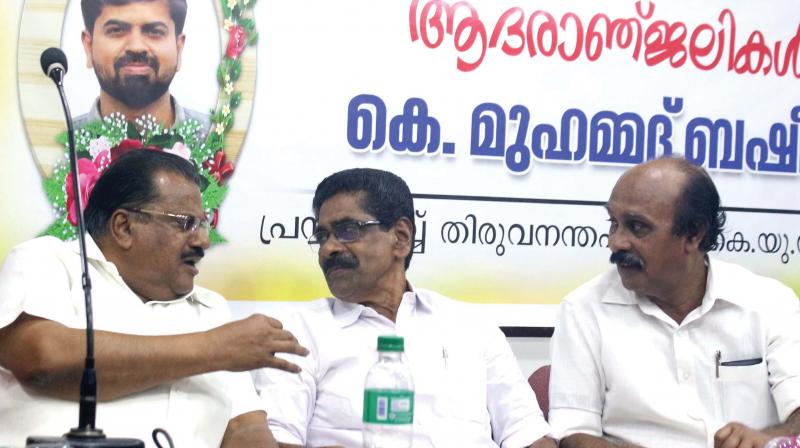Are cops correct on self-incrimination stand?
In the present case, it remains to be seen if the delayed \'course correction\' on the part of the police shall have a fatal impact on the prosecution.

On being quizzed by reporters as to why blood samples of Sriram were not taken, the Addl. City Police Commissioner responded that he had not given his consent for the same. The police officer persisted with the stand that such extraction of blood samples without the consent of the accused shall amount to 'self-incrimination' which is barred under the Constitution. Was he correct in taking such a stance ?
Self-incrimination and taking of blood samples
The prohibition against self-incrimination has its genesis in Article 20(3) of the Constitution which bars an accused from 'being compelled to be a witness against himself'. This provision first came up for interpretation before the Supreme Court in the case of M.P. Sharma & Ors. vs. Satish Chandra (1954) where it was held that "to be a witness" is nothing more than "to furnish evidence", and thus, the prohibition against self-incrimination extends to all modes of evidence. However, this wide interpretation placed on Article 20(3) was curtailed by a 11-bench judge of the Supreme Court in the case of The State Of Bombay vs. Kathi Kalu Oghad & Others (1961) where it was held that such prohibition against self-incrimination merely extends to making oral or written statements; but not in the larger sense of the expression so as to include giving of thumb impression, palm impression or specimen writing for purpose of identification.
With the overhaul of the Code of Criminal Procedure ('Cr.P.C.') in 1973, Section 53 was inserted which authorised the use of reasonable force for medical examination of the accused by a registered medical practitioner at the request of the police. The explanation appended to Section 53 in the year 2005 also clarified that such medical examination shall include examination of blood and such other tests as deemed necessary by the medical practitioner.
More recently, in the case of Selvi & Others vs. State of Karnataka & Another (2010), the Supreme Court outlawed involuntary administration of narco-analysis, brain mapping and poly graph, etc. as such procedures violated the prohibition against self-incrimination.
However, the Supreme Court expressly distinguished such advanced investigative techniques which amount to testimonial compulsion on the part of the accused from extraction of blood samples under Section 53 of the Cr.P.C. in the course of a medical examination. B. Thus, courts have, over the years, legitimised extraction of blood samples without the consent of the accused so as to provide more teeth to the investigation agencies in procuring evidence. In view of the above, the stance adopted by the police in the immediate course of investigation is not in conformity with the settled legal position.
Taking stock of the bigger picture
With the heightened media coverage and the accompanying public spotlight over the course of the day, the police subjected the accused to medical examination. Needless to say, the police is expected to subject the accused to breath analyser and blood sample tests in the immediate aftermath of the incident. Any delay in administering these tests offers the accused the opportunity to alter the outcomes of these tests.
In the present case, it remains to be seen if the delayed 'course correction' on the part of the police shall have a fatal impact on the prosecution. Nevertheless, the initial response of the police leaves much to be desired. By presenting fallacious legal arguments to delay administration of crucial tests, one can only wonder if the police has assumed the robes of the defence counsel. The Venkatraman case, much like the Unnao tragedy, has exposed the frailness of the justice delivery system in tackling perpetrators with deep connections to the 'State'.
(The views expressed are personal and do not represent the views of this newspaper)

